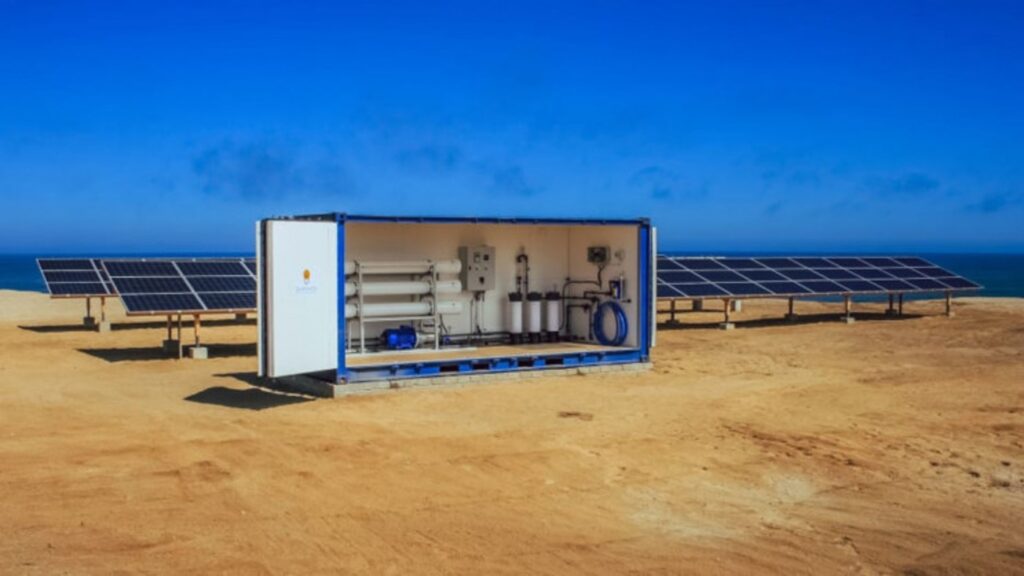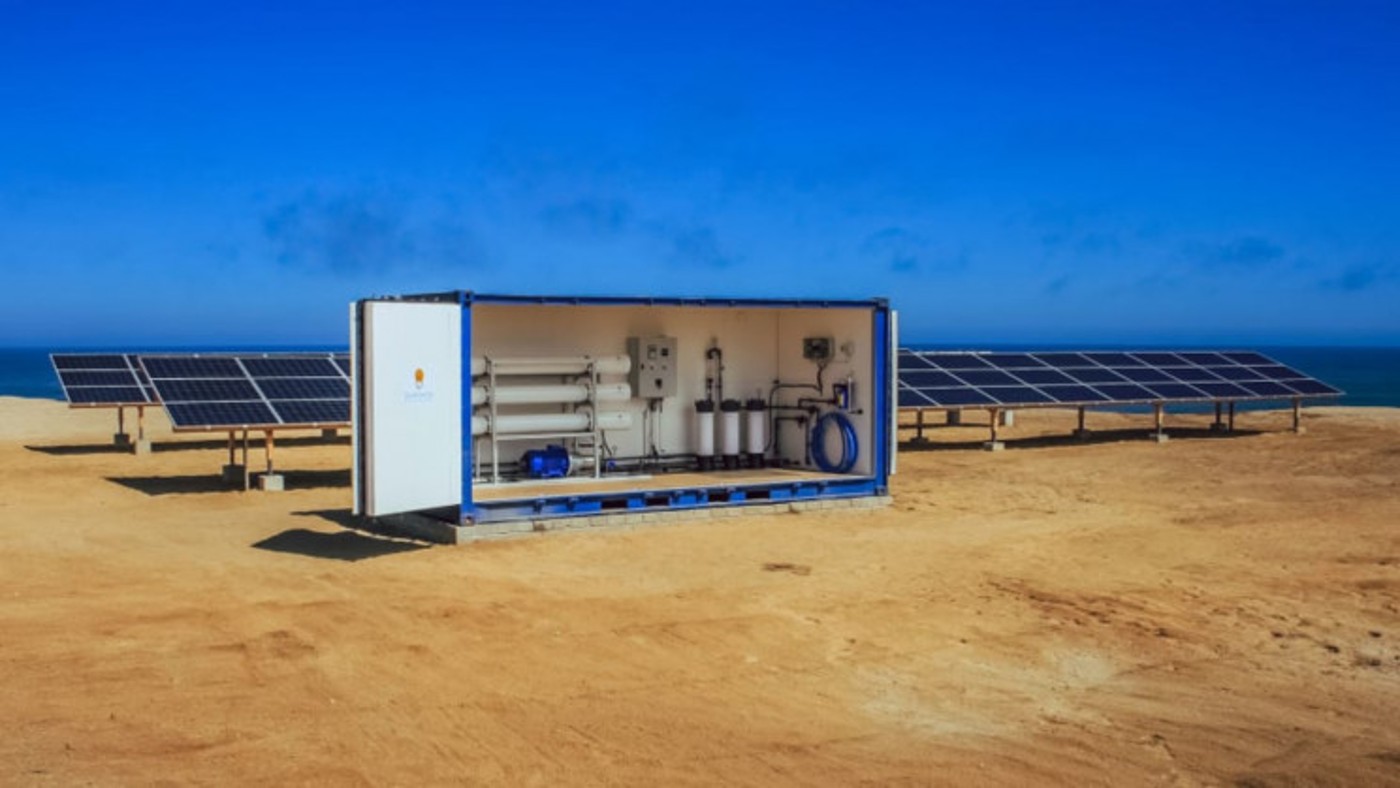
When someone invents a mass desalination plant to turn seawater into normal water without polluting the area, it will be a massive achievement, as only 3% of the water on Earth is fresh.
Solar Water Solutions (SWS), a Finnish water technology company, has come as close as anyone to being able to offer the world essentially unlimited fresh water through its unique, zero-emissions, zero-running cost, and non-polluting desalination technology.
Now it’s being deployed, thanks to backing from the Dutch group Climate Fund Managers, in Kitui County, Kenya as part of a long-term goal to provide water for 400,000 rural Kenyans by 2023.
SWS has packed up their desalination plant into a shipping container, making it easy and efficient to ship 200 units to the shores of Kitui, where the technology will convert between 4,000 and 7,000 liters per hour from seawater, or 10,000 liters per hour from brackish water, powered entire by solar panels.
“Through this partnership with CFM and locally with Kitui County… we can together revolutionize access to safe affordable water in rural Kenya,” said Antti Pohjola, CEO of Solar Water Solutions. “This project marks a breakthrough in solar-powered water infrastructure.”
MORE: Tens of Millions Now Have Power Thanks to Off-Grid Solar Systems –Many of Them Recycled
SWS uses reverse-osmosis a method that while effective, has been shown to be both dangerous to human and natural environments.
One critical review in 2007 detailed that the reverse osmosis membranes are susceptible to fouling and scaling must be cleaned with chemicals that may be toxic to receiving waters. The byproduct is an-often contaminated brine twice as strong as regular seawater that is deadly to plant matter in the area.
CHECK OUT: Shade From Solar Panels Increases Abundance of Flowers, Benefiting Pollinators
SWS have designed their product to require very little maintenance, and a spokesperson from the company said only non-toxic cleaners like citric acid are used on the membranes. Provided the byproduct brine is disposed of properly, no eco-damage should occur through the desalination process.
REMOVE the Salt From Good News and Share This Fresh Story…




















